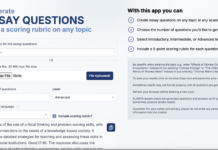Anyone who works with learning technologies is aware of the need for faculty development and training if technology is to be used well for teaching and learning. In particular, it is important to find ways to enable faculty to access and apply the considerable body of knowledge that exists about best practices in using learning technologies, relevant pedagogical theories and approaches, and research into how students learn.
Research suggests that most faculty are ‘self-directed learners’ with respect to technology, which is a nice way of saying that they are amateurs rather than professionals in their approach to training in teaching. A relatively small proportion of faculty attend formal workshops or seminars, and even fewer attend those dealing with teaching with technology. More popular are informal show-and-tell sessions where other faculty demonstrate how they are using technology, but often these sessions are not research or theory based. Lastly, excellence in teaching is rewarded less well (and is claimed to be more difficult to define) than excellence in research. Thus training to teach remains an optional and often avoided activity for faculty, whether they are tenure track or sessionals.
So any systematic effort to find new ways to encourage faculty development and training is to be welcomed. This is the aim of an Ontario project somewhat portentously named: ‘Knowledge Mobilization for Exemplary Teaching.’ This is a research program sponsored by the Higher Education Quality Council of Ontario. This program for collaborative knowledge-building and knowledge application has several goals:
- each project has a primary goal to enhance the learning experience and student success in particular courses and programs;
- all projects have a medium term goal to increase the capability of team members for collaborations to identify, mobilize, adapt, extend, and share knowledge for exemplary teaching and learning;
- each team will document the pedagogical content used in their project, as an educational resource to support knowledge exchange with colleagues;
- in the longer term, projects will also contribute to developing more effective ways for faculty and other educators to mobilize knowledge for the enhancement of teaching and learning.
The idea is to invite teams of faculty and support staff from several universities or community colleges to work together to improve teaching and learning within a particular area (e.g. undergraduate programs in science). Faculty from each partner academic unit will develop and apply particular approaches which fit their program context and institutional needs. The collaboration across universities allows the team members to consider a greater breadth and depth of research on exemplary practices within Ontario and elsewhere. Each project will be supported by a small team of three professionals, led by the KMETL Senior Director, Dr. Tom Carey, on leave of absence from the University of Waterloo.
A similar program, also under the leadership of Tom Carey, called Faculty Collaborations for Course Transformations (FACCTS), is also operating in California, focused on community colleges, with support from the William and Flora Hewlett Foundation.The FACCTS support team operates out of San Diego State University’s Center for Research in Mathematics and Science Education
In both projects there is funding for release time for faculty.
It will be interesting to see how successful these projects turn out to be, and whether the model transfers to a wider audience.









 Dr. Tony Bates is the author of eleven books in the field of online learning and distance education. He has provided consulting services specializing in training in the planning and management of online learning and distance education, working with over 40 organizations in 25 countries. Tony is a Research Associate with Contact North | Contact Nord, Ontario’s Distance Education & Training Network.
Dr. Tony Bates is the author of eleven books in the field of online learning and distance education. He has provided consulting services specializing in training in the planning and management of online learning and distance education, working with over 40 organizations in 25 countries. Tony is a Research Associate with Contact North | Contact Nord, Ontario’s Distance Education & Training Network.


Mobilizing the faculty
I absolutely agree.
Teachers need to be open for learning new things. They should try to be the best in their own areas. That way we don’t have to be called amateurs.
When a school can only afford to send a few teachers for training, they should come back and teach all of the other educators at their school what they have learned. After the learning session, the teachers should be monitored and checked to see if they continue to use the new methods that they have learned and didn’t go back to their old ways of teaching.
Educators have to remember that times are changing and we need to adapt to it and to students’ needs. We are working with learners who are constantly stimulated by different forms of technology. Now we force them to sit still in class, stare at the black board and only listen to one teacher. No wonder the learners lose concentration.
We have to think of the learners who are the future of our country. I know that I want to be the best educator that I can be and give the learners something they can always take with them.
I am open and ready to learn new things to make education fun and interesting!